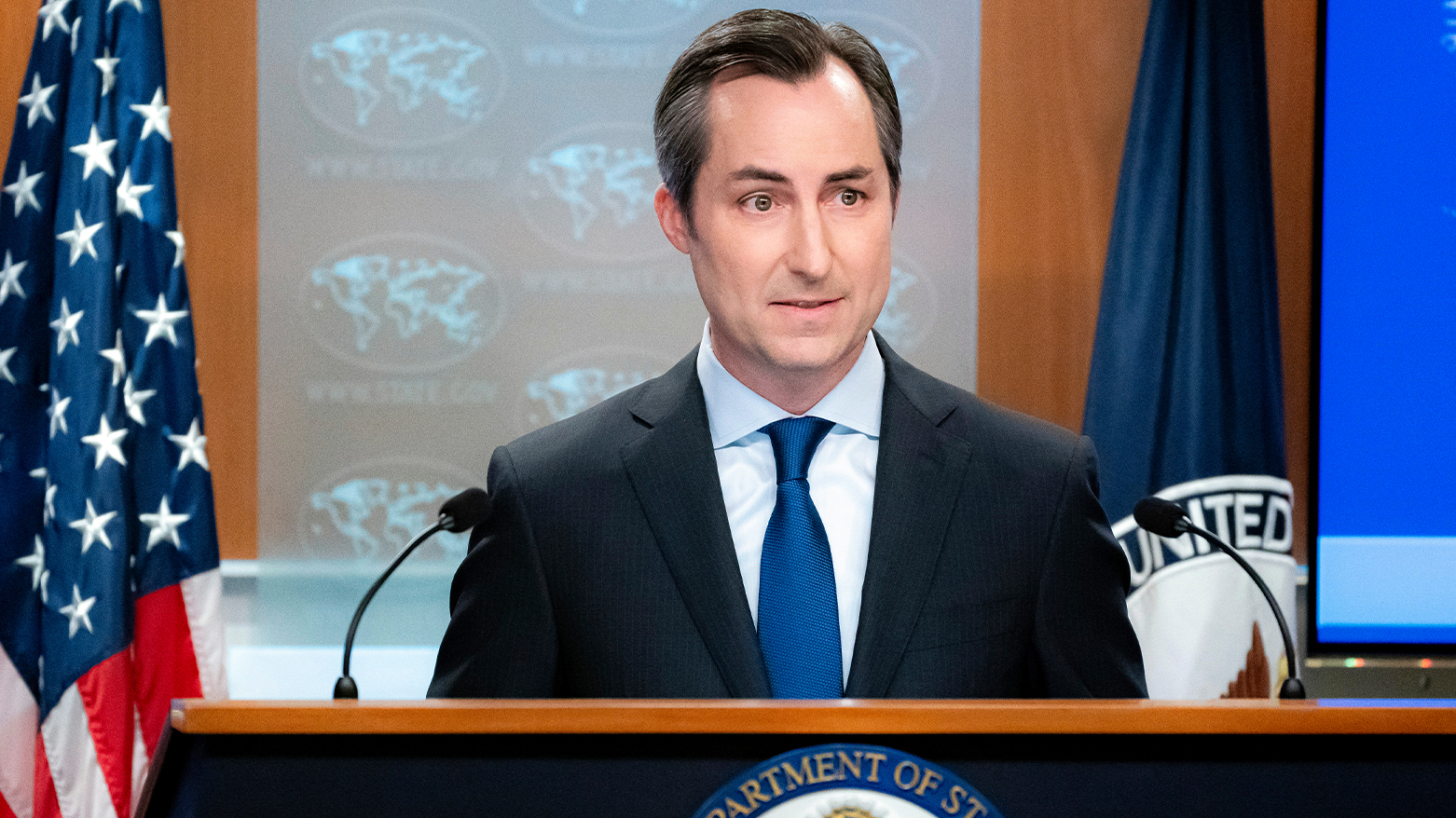U.S. Calls on Iraq to fully investigate Attacks on U.S. Franchises
Miller’s response seemed to avoid any negative language that might create problems in the newly-developing ties between Washington and Baghdad.

WASHINGTON DC, United States (Kurdistan 24) – Three U.S. restaurant franchises have been attacked in Baghdad, ostensibly in protest of U.S. support for Israel in its war with Hamas in Gaza.
They caused no physical injuries and minimal damage to the facilities. In that respect, they were largely symbolic, even as they were the first of their kind.
The first two attacks targeted Kentucky Fried Chicken outlets. The third attack was against an outlet of Chili House and Lee’s.
Those are not significant businesses in the U.S. McDonald’s, for example, is far better known and much more prominent. But, perhaps, that did not matter to the attackers. Perhaps, they just went for convenient targets that they could claim represented the U.S.
Ironically, Chili House and Lee’s was founded by a Jordanian family that immigrated to the U.S. in the 1980s. So in the name of defending Palestinians, those Iraqis attacked a Jordanian-owned business!
The Kurdistan Region, of course, hosts such facilities–from the U.S. and elsewhere. But nothing of that sort has happened in the Kurdistan Region.
That fact highlights an important point made earlier this week by Treefa Aziz, Representative of the Kurdistan Regional Government (KRG) in Washington: the Kurdistan Region is a stable, reliable U.S. ally in an increasingly unstable part of the world.
The 2024 U.S. defense budget calls for the Pentagon to provide an air defense system to the Kurdistan Region. The tensions generated by the war in Gaza have brought increased attacks on U.S. targets and on its allies.
But the Pentagon has yet to move on providing the Congressionally-mandated air defense system. Writing in The Hill, Aziz stressed the importance of quick, meaningful Pentagon action to provide protection for its Kurdish allies.
Read More: KRG: Congress Legislated Air Defenses for Kurdistan Region—Pentagon Must Act
Anti-American Sentiments in Baghdad
On Tuesday, State Department Spokesperson Matthew Miller was asked about the anti-American sentiments that have recently appeared in Baghdad.
One question involved the attacks on the American franchises in Baghdad. “We are tracking those reports,” Miller replied, “and obviously condemn the act of violence.”
Miller continued, adding, “We welcome the statement by Iraqi authorities that they are investigating the attack and want to see them fully do so.”
Already on Sunday, aided by surveillance cameras, Iraqi authorities announced the arrest of two men who had thrown “a homemade explosive device” at the fast food restaurant, as the Baghdad Operations Command stated. However, those arrests did not prevent the next attack.
Hoshyar Zebari, a long-time Kurdish political figure, who became Iraq’s first post-Saddam Foreign Minister, and then served as Minister of Finance and Deputy Prime Minister, tweeted about the issue on Monday.
As Zebari noted, “There is a great contradiction between the Iraqi government's call for countries to invest in Iraq as stable and recovering” and the recent attacks on U.S. restaurants in Baghdad by “unruly armed groups.”
Muqtada al-Sadr
The mercurial cleric, Muqtada al-Sadr, joined in the anti-Americanism. Unlike the self-styled “Islamic Resistance in Iraq,” the Iranian-backed Shi’a militias, Sadr is relatively independent of Iran.
However, on Tuesday, he tweeted a demand that the U.S. embassy in Baghdad be shut down and “the American fool” expelled from Iraq.
Yet Sadr did emphasize the importance of avoiding violence, so as not to give the U.S. an excuse to respond with its own attacks.
Read More: Muqtada al-Sadr calls for expulsion of U.S. Ambassador
Asked about Sadr’s statement, Miller responded that he was “aware” of it, even as he appeared to go out of his way to avoid responding in kind and picking a quarrel.
“I will just say that we value our broad relationships—or broad strategic relationship—with Iraq ,” Miller continued, “and remain committed to working with the Government of Iraq to expand opportunities for all Iraqis, and support Iraq’s security, stability, and sovereignty.”
Last month, Iraqi Prime Minister Mohammed Shia’ al-Sudani paid his first visit to Washington. It appeared to go reasonably well, including a private meeting between him and U.S. President Joe Biden.
Thus, Miller’s response seemed to avoid any negative language that might create problems in the newly-developing ties between Washington and Baghdad.